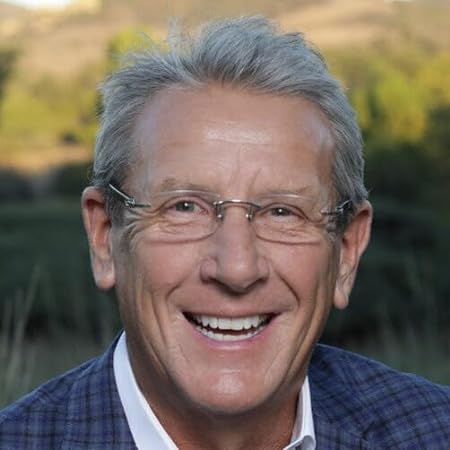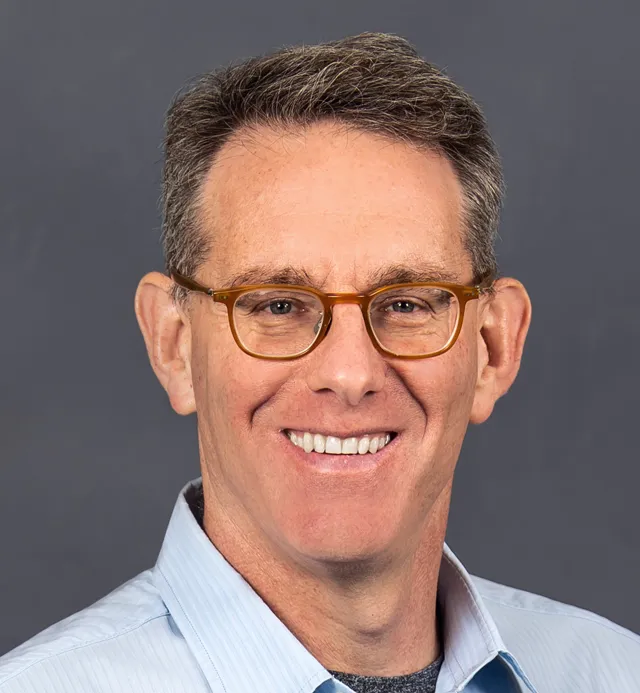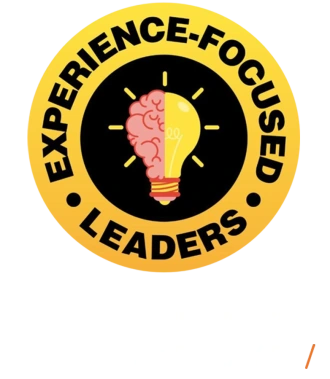Listen to the Podcast Episode on Your Favorite Platform

.svg.png)

Ordinary People, Extraordinary Impact: Oleksandra Matviichuk on Ukraine's Fight for Freedom and Justice
.png)
I witnessed international organizations, including humanitarian ones, evacuating their personnel. They left us alone, but ordinary people stayed. Ordinary people started to do extraordinary things. It was ordinary people who helped others survive under artillery fire. It was ordinary people who rescued people from ruined cities. It was ordinary people who broke through encirclements to deliver humanitarian aid. (Oleksandra Matviichuk)
(00:00-08:34)
Oleksandra begins by recounting the early days of the large-scale Russian invasion in 2022, when the world doubted Ukraine’s ability to resist. With its immense resources, nuclear weapons, and significant military power, Russia seemed invincible. Yet, as Oleksandra points out, the strength of the Ukrainian people proved mightier.
She shares moving stories of individuals risking their lives to protect others, delivering humanitarian aid under fire, and rescuing people from cities devastated by war. When international organizations evacuated, leaving Ukrainians to fend for themselves, it was everyday people who stepped in to fill the void. Their courage and determination underscored a profound truth: ordinary citizens, united by a shared commitment to freedom and dignity, can achieve what seems impossible.
As a human rights lawyer, Oleksandra reflects on the limitations of the law in times of war. When legal systems, international guarantees, and institutions like the United Nations fail, the resilience and action of people become the bedrock of justice. In her 2022 Nobel Peace Prize acceptance speech, she emphasized this lesson: collective action from ordinary people can change the course of history far more effectively than institutional efforts.
Alex and Oleksandra explore the critical role of international allies in sustaining Ukraine's resistance. Oleksandra warns against complacency as the war continues into its third year and fades from global headlines. She describes Russia’s relentless pursuit of its imperial ambitions, driven by a disregard for human life and a desire to restore a legacy of domination.
For those outside Ukraine, Oleksandra explains that the fight is not just about one nation—it’s about defending universal values like freedom and human dignity. She highlights the need for sustained support, from advocating for political aid to raising awareness about ongoing atrocities, such as the recent attack in Zaporizhzhia that killed civilians in everyday spaces like hospitals and public transport.
Oleksandra acknowledges the overwhelming scale of the war and the sense of helplessness it can evoke. However, she insists that every contribution matters. Writing about Ukraine’s struggle, organizing donations, urging governments to act, or finding creative ways to offer assistance are all meaningful. Even small efforts, when combined, can bring about profound change.
She also addresses a poignant question she often hears: “How can my individual actions stop a war of this magnitude?” Oleksandra reminds listeners that history is shaped not only by governments and armies but also by the collective determination of people.
.png)
Drops in the Ocean: Fighting for Freedom, Rights, and Justice in Ukraine
.png)
If decisions are made based solely on short-term benefits or interests, catastrophe is inevitable in the long term. Only values provide the foundation for a sustainable future. That’s why it’s both rational and pragmatic to base decisions, strategies, and actions on values—alongside economic considerations and other factors. (Oleksandra Matviichuk)
(08:34-19:42)
Oleksandra reflects on the Revolution of Dignity, which began 10 years ago when millions of Ukrainians rose against corruption and authoritarian rule. She shares how, amidst police violence and systemic oppression, she and fellow activists launched Euromaidan SOS—a grassroots initiative to provide pro bono legal assistance to those beaten, arrested, or falsely accused.
Starting with just two Facebook posts, this initiative quickly connected victims with lawyers willing to stand up against injustice. What began as a small effort turned into a lifeline for hundreds, operating around the clock during some of the darkest months in Ukraine’s recent history.
The conversation takes a personal turn as Alex and Oleksandra discuss their shared experiences of growing up in Ukraine and witnessing the remnants of Soviet authoritarianism. Alex recalls his parents secretly sharing banned literature, while Oleksandra explains how living under a repressive regime fosters a deeper appreciation for freedoms often taken for granted in democratic societies.
Oleksandra underscores that freedom, like oxygen, must be defended continuously. She warns that even stable democracies risk losing their foundational values when decisions prioritize short-term benefits over human rights.
Oleksandra emphasizes that Ukraine’s fight is not just for its sovereignty but for the principles of freedom and justice that resonate globally. She calls for collective vigilance, reminding listeners that human rights are not guaranteed—they require daily commitment and action.
.png)

Balancing Democracy and War: Ukraine’s Fight for Freedom and Reform
.png)
If decisions are made based solely on short-term benefits or interests, catastrophe is inevitable in the long term. Only values provide the foundation for a sustainable future. That’s why it’s both rational and pragmatic to base decisions, strategies, and actions on values—alongside economic considerations and other factors. (Oleksandra Matviichuk)
(19:42-26:31)
Oleksandra explains that Ukraine’s struggle with Russia began in 2014, not 2022. After the Revolution of Dignity toppled a corrupt regime, Ukraine set out to establish democratic institutions and reforms. Just as progress was taking root, Russia invaded.
This dual fight—defending the nation while reforming it—poses a unique challenge. Oleksandra highlights the tension between the "logic of war," which prioritizes survival, and the "logic of democratization," which focuses on creating a better future. Despite the immense pressure, Ukraine cannot delay reforms. Waiting for the war to end is not an option when the timeline of conflict remains uncertain.
Addressing misconceptions, Oleksandra debunks the claim that NATO posed a threat to Russia in 2014. At the time, Ukraine was a neutral nation, and NATO membership wasn’t even on the table. Russia’s invasion was driven by Ukraine’s democratic aspirations, which were seen as a threat to authoritarian rule in the region.
Since then, Ukraine has pursued NATO membership—not just for security but to contribute to regional stability, armed with one of Europe’s strongest armies.
The discussion turns to leadership under pressure. Oleksandra believes responsibility defines true leadership and emphasizes that Ukraine’s efforts are about taking ownership of its future, rather than leaving unresolved challenges for future generations.
Alex reflects on the remarkable resilience and leadership of Ukrainians, noting their ability to take on “impossible” tasks and make progress in unimaginable circumstances. He invites Oleksandra to share examples of leaders who have risen to the occasion, illustrating the incredible resolve of individuals and communities in Ukraine.
.png)
Ordinary People, Extraordinary Courage: The Human Stories Behind Ukraine’s Fight
(26:31-35:44)
Oleksandra emphasizes that Ukrainians are ordinary people who never sought heroism. But when Russia invaded, they were forced to confront their fears, discomfort, and exhaustion to defend their freedom. This war has compelled individuals to reveal the best within themselves—showing courage, helping strangers, and taking on responsibilities they never imagined.
She recounts how volunteers in the Euromaidan SOS initiative, many without prior civic experience, stepped up in response to the crisis. Even amidst unimaginable pain, these acts of solidarity exemplify what it means to be human.
Oleksandra also reflects on documenting war crimes—not just as violations of international law but as deeply personal tragedies. Despite the overwhelming sorrow, she holds onto Václav Havel’s idea of hope: that meaning lies in knowing our actions matter, even when the future remains uncertain.
Alex highlights the power of personal stories in helping the world grasp the reality of war. He shares an example of a book that collects text messages exchanged at the onset of the invasion—raw, emotional glimpses into the lives of families.
Oleksandra stresses the importance of sharing individual stories from the frontlines, showing the human cost of Ukraine’s pursuit of democracy. While statistics and news reports offer valuable context, true understanding often requires firsthand experiences. She encourages people to visit Ukraine, witness its resilience, and connect with the reality on the ground.
Oleksandra reiterates that Russia’s invasion is not about NATO but about suppressing Ukraine’s democratic aspirations. The violence inflicted—war crimes, cultural erasure, and forced assimilation—reflects a broader fear of freedom. Yet, Ukrainians continue to resist, driven by their belief in the right to self-determination.
.png)

Preserving Freedom in a Fragile World: Lessons from Ukraine's Fight for Democracy
.png)
Take Silicon Valley as an example. Only in a free environment can you nurture technology, ideas, and startups. While there’s always a risk of failure, there’s also the possibility of defending your property and your vision. In authoritarian or partially free societies, even large banks can’t defend themselves, and property owners can’t protect their assets. When an authoritarian regime decides something, there is no recourse—the decision is final and unchallengeable. (Oleksandra Matviichuk)
(35:44-47:56)
Alex opens the dialogue by quoting from Oleksandra’s book, The Peninsula of Fear, and poses a critical question: How can we ensure that the current events in Ukraine are remembered meaningfully by future generations? Oleksandra emphasizes the importance of defining both short- and long-term goals, stating that documenting war crimes isn’t enough—we must actively work to stop them. She underscores the global significance of the conflict, which she frames as a battle between authoritarian and democratic systems.
Oleksandra describes the formation of an authoritarian alliance that includes Russia, Iran, North Korea, China, and Syria. These regimes, she argues, are working to dismantle the current international order, which—despite its flaws—upholds human rights and freedoms. The outcome of the war in Ukraine, she warns, will have far-reaching consequences for global freedom and democracy.
Alex challenges Oleksandra to reflect on two nuanced themes. First, he questions whether democracies can remain a moral beacon when they sometimes partner with authoritarian regimes for strategic interests. Second, he probes the idea of peace, highlighting the messy realities of foreign policy and the need to engage with imperfect neighbors, even after conflicts end.
Oleksandra acknowledges that democracy isn’t perfect, but she argues that it’s the safest system for ensuring individual rights and freedoms. In contrast, authoritarian regimes rely on force and perpetuate cycles of terror. She urges democracies to protect freedom not only within their borders but globally, emphasizing that freedom is a shared responsibility.
.png)
Freedom’s Fragile Foundation: Redefining War, Peace, and Truth in a Divided World
.png)
Our digital life, our digital reality, is very polluted—polluted with disinformation, anger, hate, and various campaigns conducted by politicians, businesses, or states. People are not prepared to live in such a digital reality. Sometimes, I feel that people are losing the ability to distinguish between lies and truth, and with the era of deep fakes, it’s becoming more and more difficult to make that distinction. What we have as a result is even in small communities, people no longer share the same reality because they belong to different informational bubbles. (Oleksandra Matviichuk)
(47:56-58:55)
Oleksandra redefines peace as more than just the absence of conflict. While many equate peace with a lack of war, she stresses that true peace means living without fear and with the ability to plan for the future. She draws parallels to countries that, despite not facing invasions, are still plagued by violence and instability.
War, she argues, is multifaceted and extends beyond physical battles. It encompasses economic, digital, informational, and values-based dimensions, with global consequences. Oleksandra underscores the importance of broadening our understanding of these terms to address the modern challenges they present.
Oleksandra and Alex discuss the fragility of democracy in the face of disinformation and societal division. Alex reflects on how instability creates a survival mindset, preventing societies from focusing on long-term goals or building lasting relationships.
Oleksandra warns that disinformation, especially in today’s "post-knowledge environment," fragments communities into isolated informational bubbles. These divisions erode shared realities, making collective action and democratic governance increasingly difficult.
As more people spend significant time online, digital spaces have become polluted with disinformation, hate, and propaganda. Oleksandra expresses concern over humanity’s decreasing ability to distinguish between lies and truth. The rise of deepfakes and other manipulative technologies exacerbates this issue, further fragmenting societies and threatening democracy.
Oleksandra highlights the transnational nature of modern conflicts. She points to instances where countries like Russia and China exploit weak points in other nations, turning the information space into a battlefield. She calls for a reevaluation of how we approach global security, urging democracies to better prepare for these non-traditional forms of war.
Alex introduces the idea of using platforms like RELAYTO to bridge the gap between short, attention-grabbing content and deeper narratives. By leveraging technology, he hopes to present robust stories that help people see beyond sound bites and better understand complex issues.
Oleksandra emphasizes that while technology can assist, the solution to disinformation and societal division ultimately lies in human responsibility. Building shared realities and fostering critical thinking are essential to protecting democracy.
.png)
Check the episode's Transcript (AI-generated) HERE.
Other Episodes

Godard Abel | CEO of G2
S 01 | Ep 6 Where You Go for Software: Reach Your Peak


Dean Stocker | CEO of Alteryx
S 01 | Ep 8 Turning Your Customers Into Your Biggest Champions


Peter Fader | Co-Founder of ThetaCLV
S 01 | Ep 10 Turning Your Marketing Into Dollars

Author

Experience-focused Leaders is the #1 Multimedia Podcast! We talk to senior business & tech leaders about the experiences that move forward organizations, customers and society at large. True to form, we mix audio, video, web and eBook formats to turn these authentic conversations into personalized nuggets you'll remember & use.



.png)
